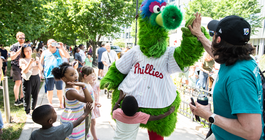
March 21, 2017
The recent outrage by NBA commissioner Adam Silver concerning the league’s member clubs resting star players is laughable on so many levels you have to wonder how the man kept a straight face when he concocted the proclamation that even referenced the word “fans.”
Silver reportedly sent a memo to the NBA’s 30 franchises, threatening “significant penalties” to teams that don’t abide by the league’s existing rules for providing “notice to the league office, their opponent, and the media immediately upon a determination that player will not participate in a game due to rest,” and promised the issue will be discussed at the NBA’s next board of governors meeting on April 6.
The league response came on the heels of consecutive Saturday night national TV games that featured more All-Stars in street clothes than in uniform.
This past Saturday, the NBA-champion Cavaliers sat Kevin Love and Kyrie Irving with injuries and gave LeBron James the night off. A week earlier, the Warriors rested Steph Curry, Draymond Green, Andre Iguodala and Klay Thompson against the Spurs in San Antonio. Both the Cavs and the Warriors were blown out.
And suddenly, Silver is concerned that the fans are not getting their money’s worth when teams don’t put their best players on the court.
In the memo, Silver stated that it is unacceptable for owners to be uninvolved or to defer decision-making on this topic to others in their organizations who may not have the same awareness of the impact these decisions can have on "fans and business partners," the reputation of the league and the "perception of our game."
Fans?
Let’s be real about this: Silver is only concerned because the games were on national television. Let there be no doubt that the memo, which was “obtained by ESPN,” was placed there because ESPN is part of ABC, the network that happened to be carrying the games.
Cleveland general manager David Griffin made it pretty clear that Silver’s threats meant little to him, that it was his job to win championships for the Cavaliers – not to appease the league.
There is much history here. San Antonio coach Greg Popovich pretty much pioneered resting players en masse. In 2012, then-commissioner David Stern fined the Spurs a whopping $250,000 for sending Tim Duncan, Tony Parker, Manu Ginobili, and Danny Green home for a TNT game against the Heat.
The whole situation is now a problem for the league for no other reason than the TV contract. If you really think the NBA is worried about the fans in the stands getting to see the stars understand this: the people who paid for tickets do not matter to the league.
This problem with the NBA – and all professional sports leagues for that matter – is that it has sold its soul to television and ticket plans are now structured far differently than in the past.
If Silver or any league executive really cared about fans getting their money’s worth when they come to a game, how could they possibly defend the rosters for preseason games? For the same prices you pay as a season ticket holder for a regular season game, you get to see a preseason game with nobody you ever dreamed of watching in a professional uniform.
Think back to what basketball fans in Philadelphia have had to endure over the past half-decade. You can argue one way or the other about whether or not it was right to Trust the Process, but you can’t argue about the fact that the NBA just sat by and watched tank, after tank, after tank.
The Sixers were eventually rewarded with the top pick in Ben Simmons, and there is every chance that they have put together a group of young players that – barring injury – could reap a huge reward. However, in the meantime, the fans had to suffer through one horrendous performance after another.
And they are not alone. Take a look at the lineup the Lakers are putting out right now.
So, what Silver and the NBA are claiming is that it’s no problem for a team to literally not compete for years, but it’s a major issue when a team sits a star player or two on a Saturday night in March?
This is hardly anything new in sports, where star players sit at the end of seasons when playoff spots are secured. In Major League Baseball, you can assume a star catcher and others will be off on a Sunday afternoon in the unwritten “day game after a night game’’ edict.
The biggest problem with the NBA is that the star player is the draw, the attraction. It is even a bigger problem now because the leagues have allowed their ticket prices to be tiered so that you pay more for games against a team with a star.
It is even more frustrating when you play the aftermarket ticket-buying game. Imagine paying triple face value for a ticket to watch LeBron play – and then he doesn’t not because of injury, but so he can rest.
It's a big problem, right? Well, the league really doesn’t care about that scenario.
The one it cares about is when a TV network that paid a bazillion dollars for the contract can’t draw ratings and, in turn, advertising revenue because the best players aren’t suiting up. That tends to get the networks angry.
It’s just laughable to think that the NBA’s concern about sitting players has anything to do with standing up for the fans. It’s all about standing up for the biggest dollars.